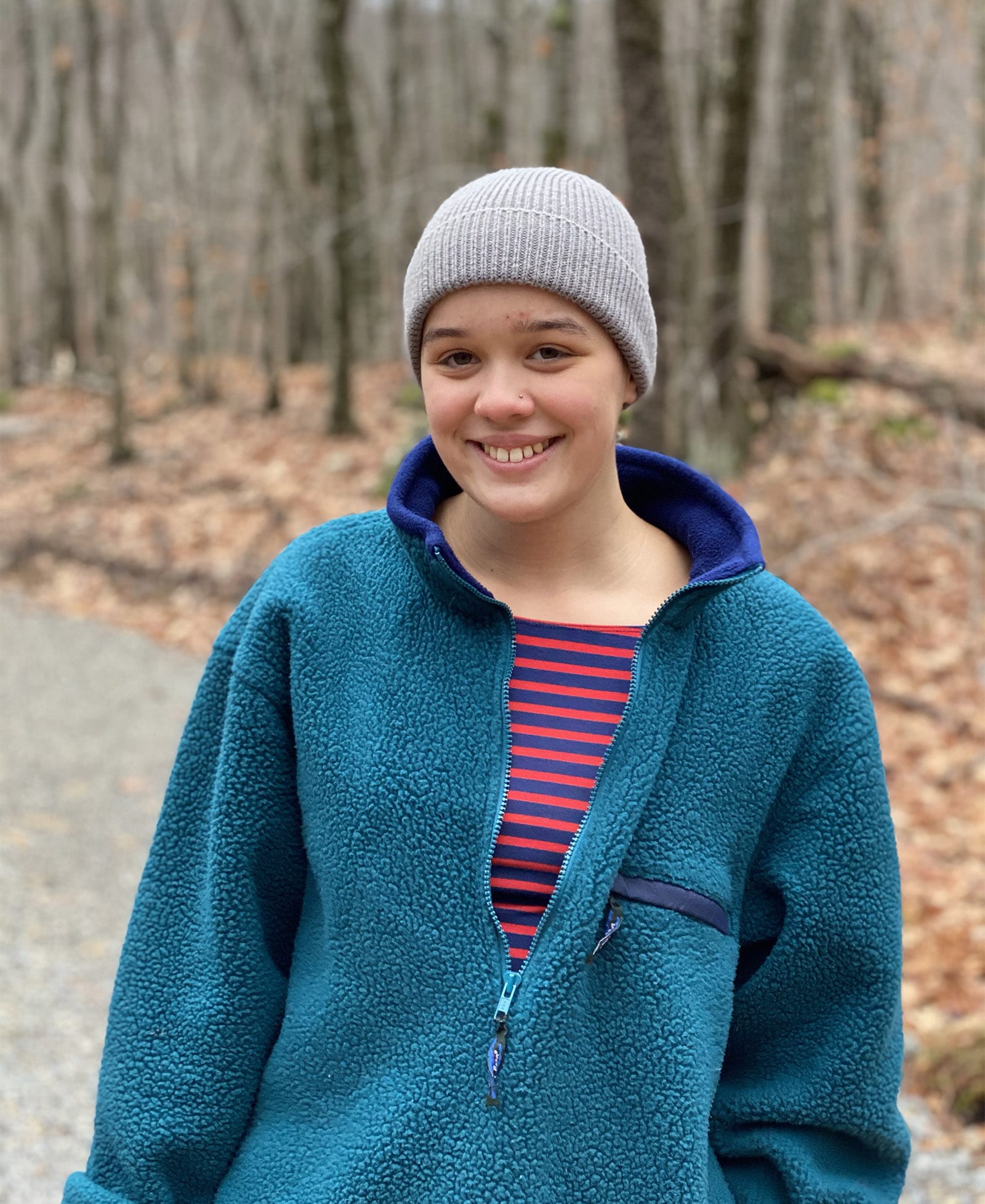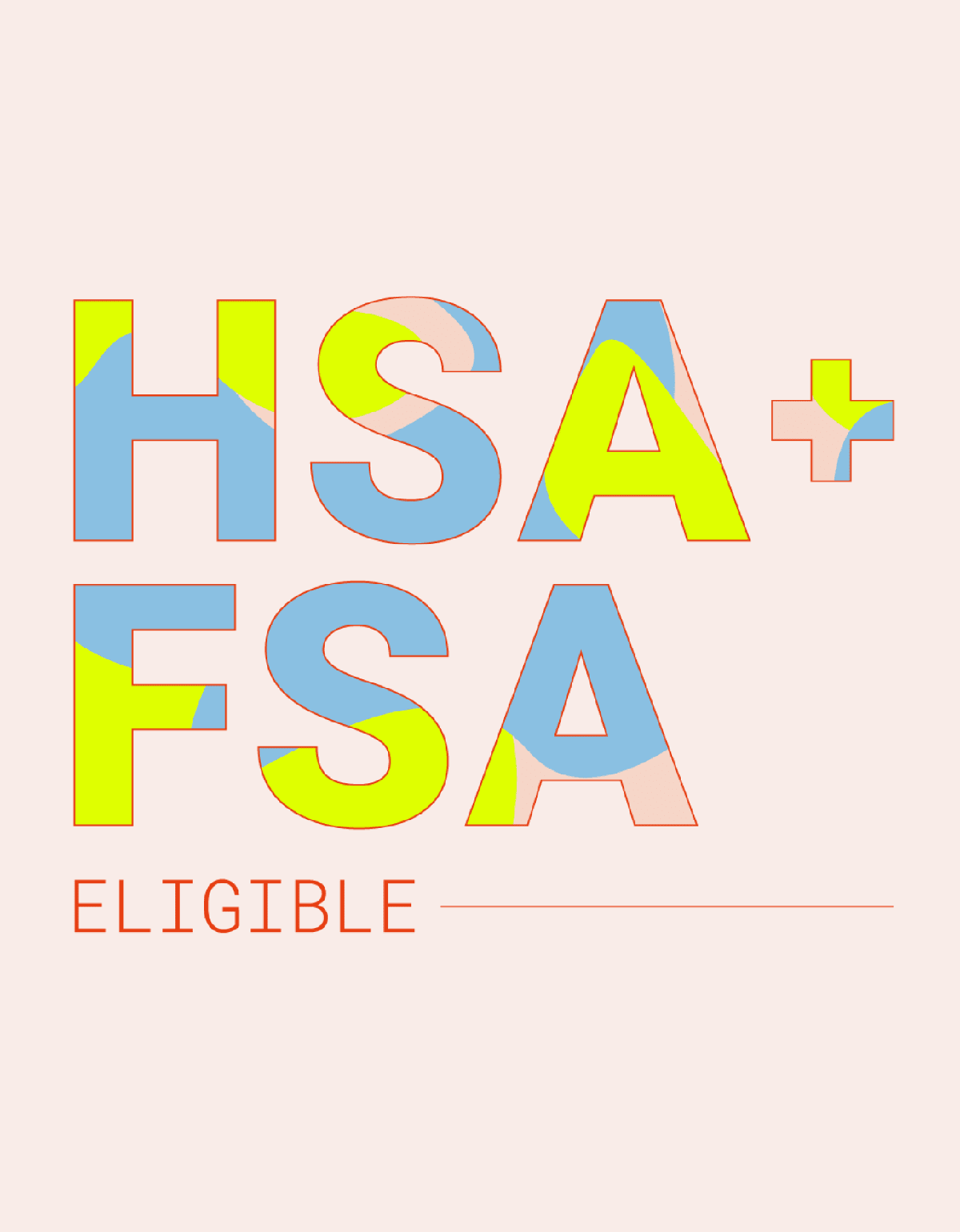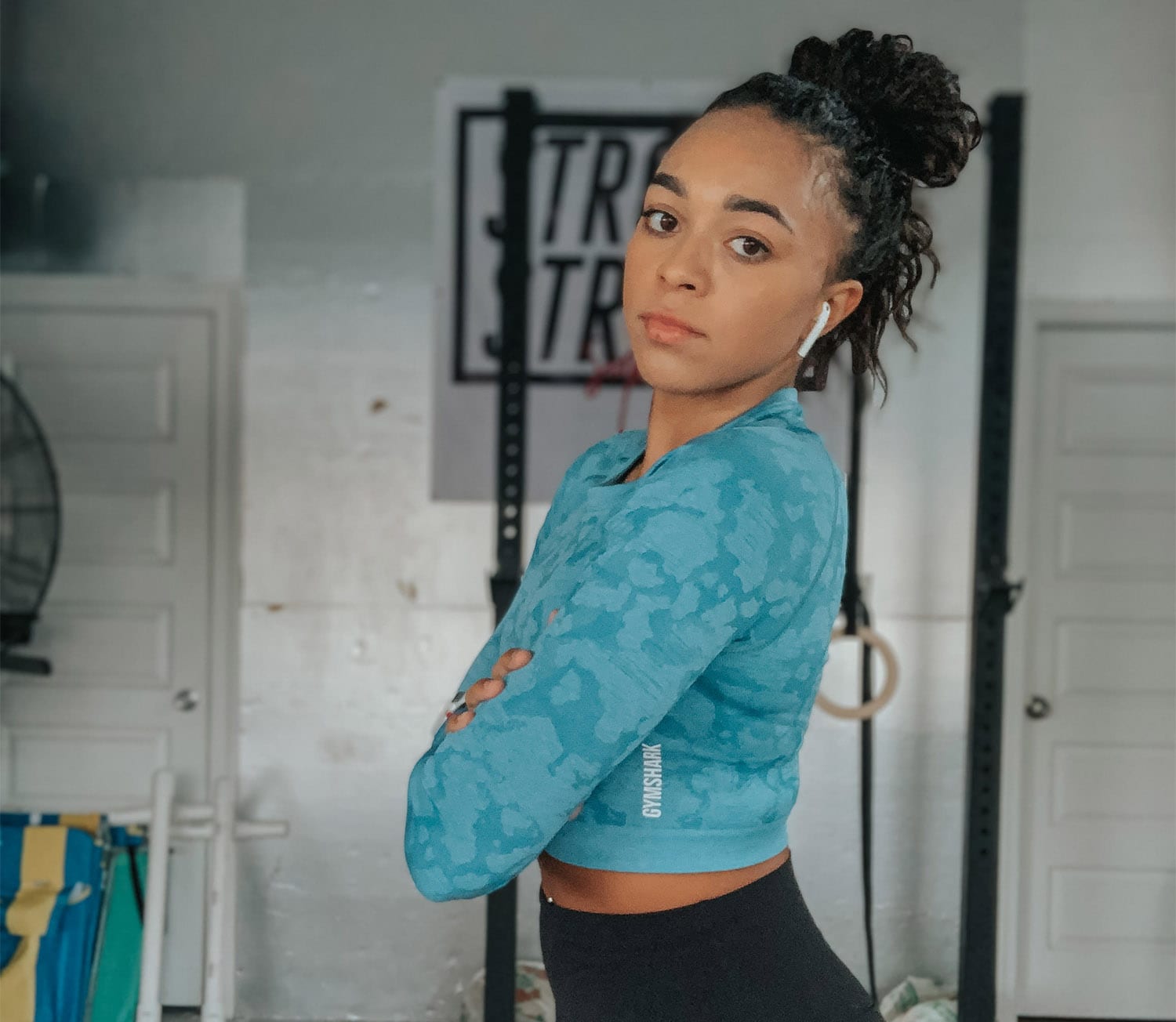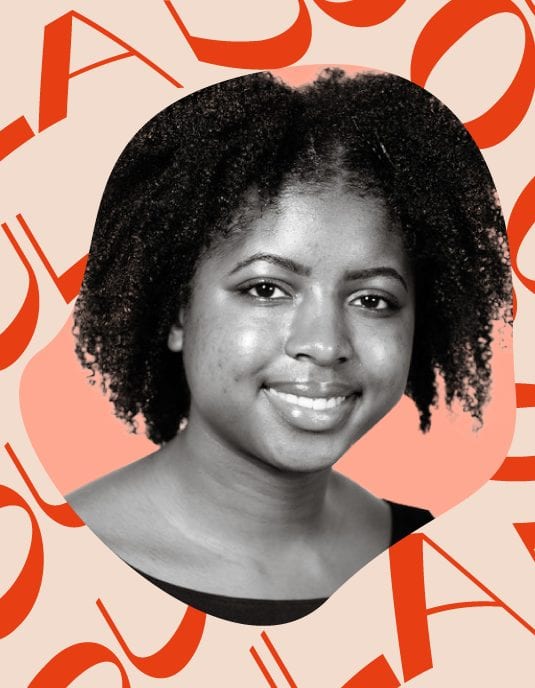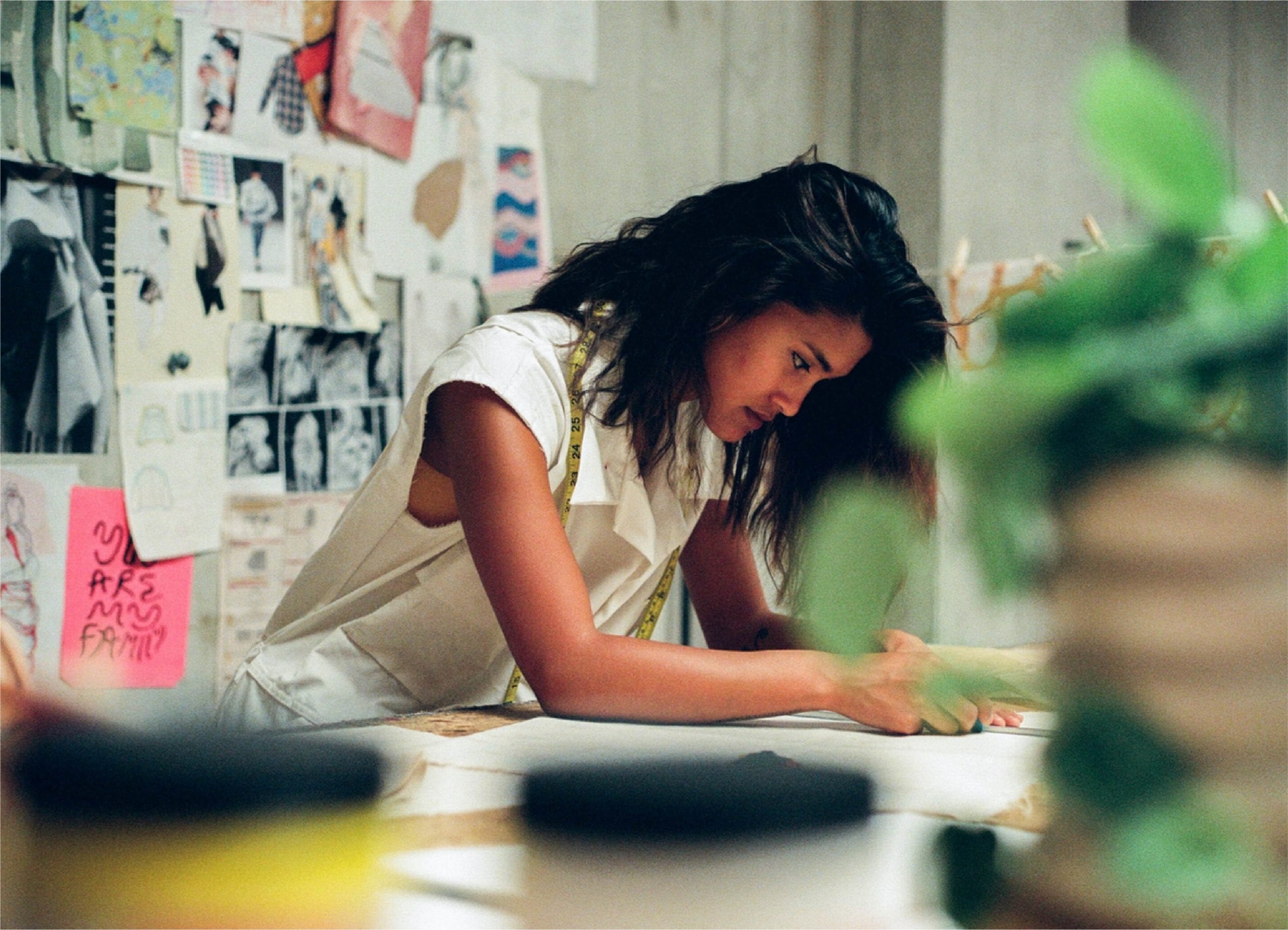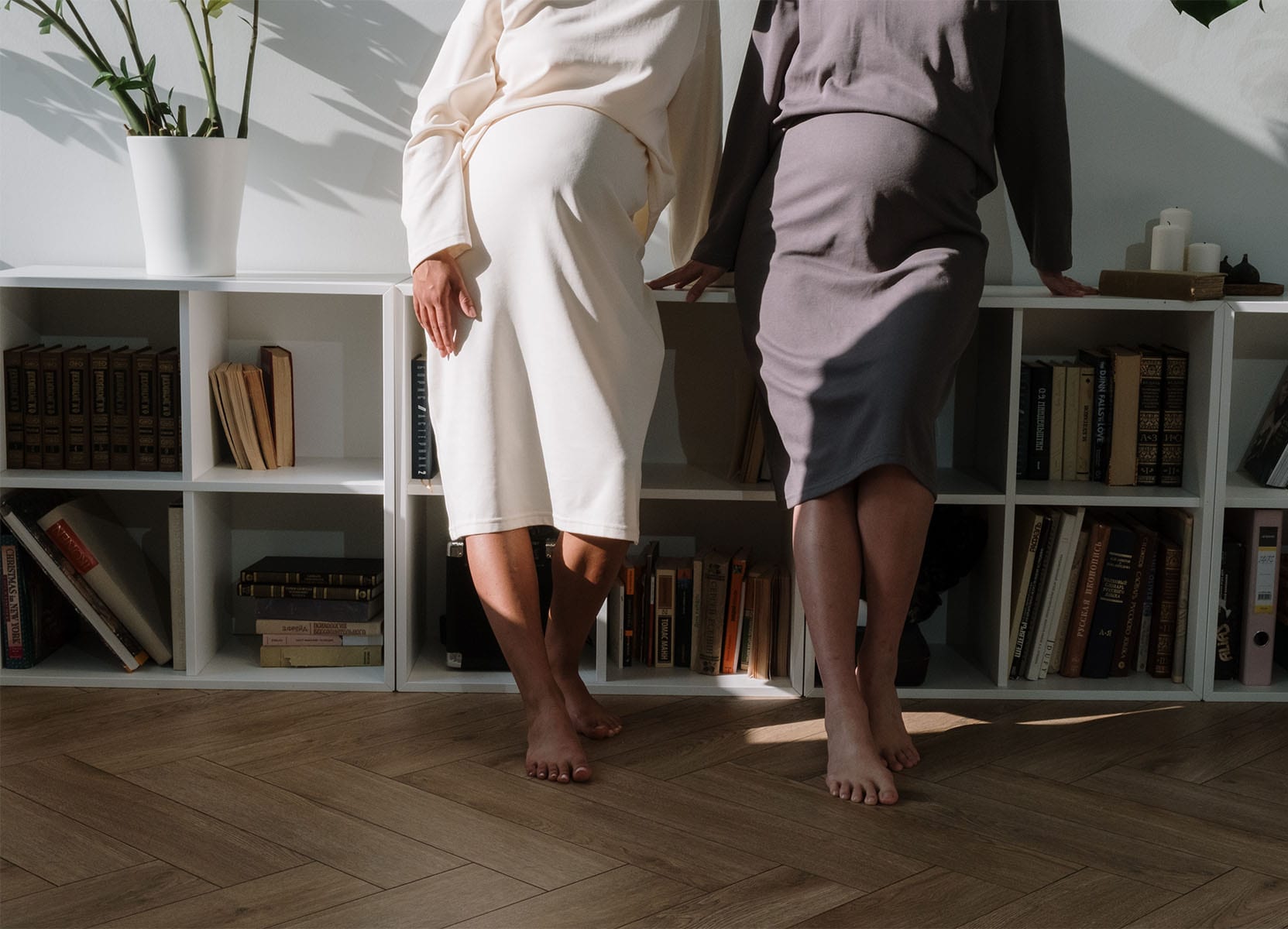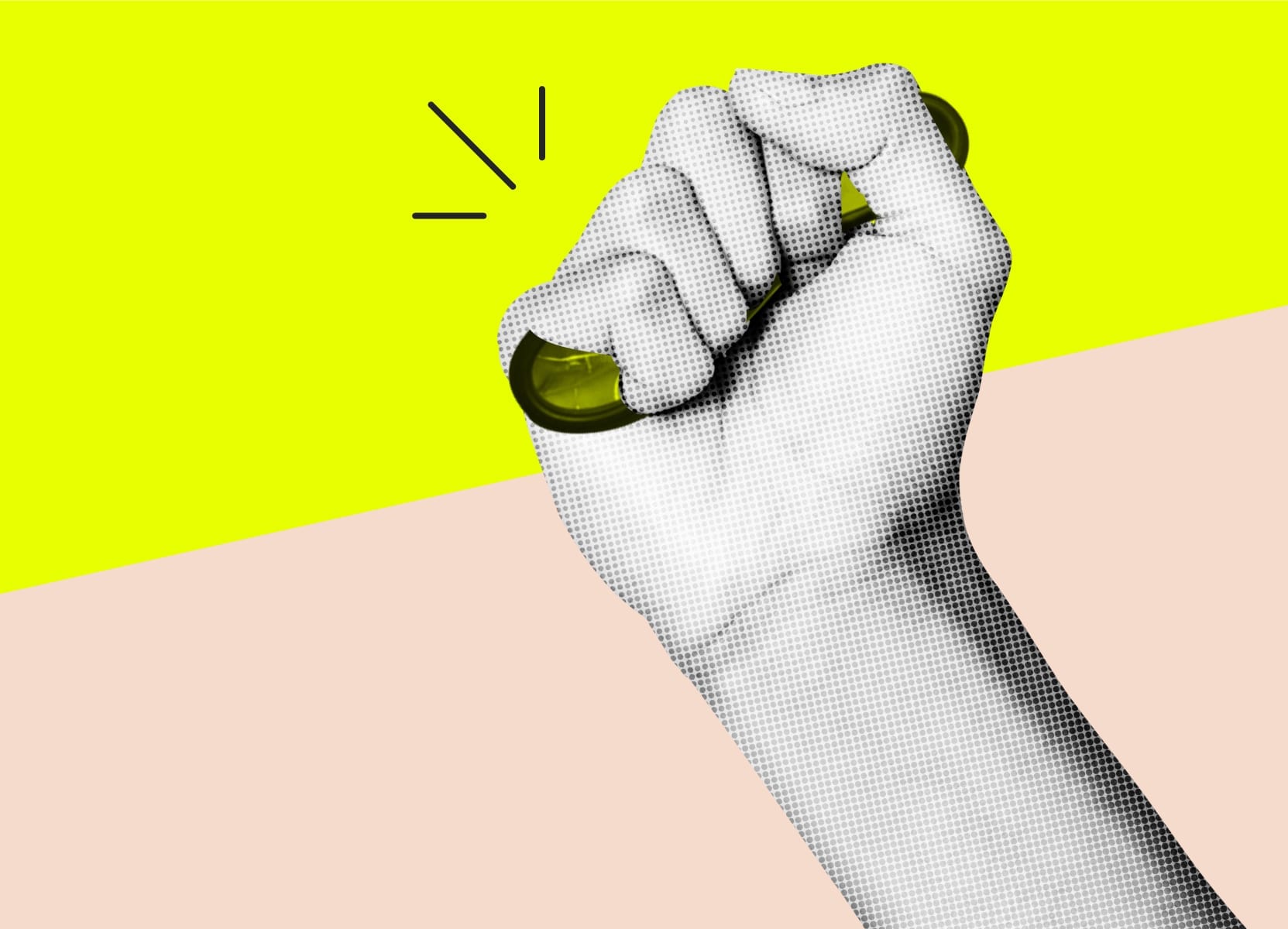How 16-year-old Tessa Gabriel Meil is fighting for menstrual equity
Fighting period stigma, one school bathroom at a time
TL/DR: High school student Tessa Gabriel Meil is singlehandedly tackling period stigma and fighting for menstrual equity in her hometown of Camden, Maine. Here’s how she got her town’s middle and high school bathrooms stocked with free menstrual products for all students.
While most of us were busy worrying about grades or sports team tryouts or popularity in high school, 10th-grade hero Tessa Gabriel Meil is on a much bigger-picture mission: Singlehandedly taking down the stigma around periods.
Her work began with a simple curiosity: Soap and toilet paper are bathroom essentials. When we go to the bathroom, we expect them to be there. Why shouldn’t we expect the same of pads and tampons?
Tessa solved this problem proactively by stocking her middle school bathrooms with free pads and tampons, sometimes even preparing paper bags filled with 10 tampons at a time for kids to take home over the weekend.
Not long after, Tessa partnered with One Less Worry (OLW), a nonprofit organization that provides free menstrual products to schools and women’s shelters in Rockland, ME, to open the first OLW branch in Camden Middle School. Two years later, when she started high school, Tessa became the first youth representative on OLW’s Board of Directors.
Because Tessa spoke up and did her part, her high school now provides free menstrual products in all bathrooms. Like soap, toilet paper, and paper towels, pads and tampons are now stocked regularly by janitorial staff.
While Tessa is no longer working with OLW, she’s continued to fight for menstrual equity on her own, using social media and word-of-mouth to keep the conversation going. Tessa’s strength, intelligence, and advocacy inspired everyone here at Flex. She was gracious enough to answer a few questions for us during her study hall last week:
How did you first get started with promoting menstrual equity in your hometown?
I began stocking the bathrooms of the school in 7th grade as a part of my mitzvah project. I checked on each of the bathrooms, keeping pads and tampons stocked and organized. OLW was providing free menstrual products in many school bathrooms, but not my middle school. So I helped open a whole new branch of OLW in Camden Middle School.
When I went into high school last year, the founder, Sharon Hobson, approached me about being the first-ever youth representative on the Board of Directors of OLW. Every year since then, Sharon and the Board pick a student from one of the regional high schools, and that person will serve as a non-voting member of the Board for a yearlong term.
Doing that, I was able to see even more just how quickly OLW is expanding and changing to serve more locations, more people, and provide more products.
What kinds of conversations have you struck up within the community?
For a long time, it never occurred to me that public bathrooms should have pads and tampons, for free, available. I never considered that a place that gives me free toilet paper, free soap, free paper towels, should perhaps have an obligation to also provide me with free period products.
I never recognized that my school, a place that gives me lunches, a personal iPad — even an education, all at no personal cost – should maybe have available products that half of its students need on a regular basis.
How has this project within your school shaped your goals for the future?
People see me walking from bathroom to bathroom with tote bags full of tampons, and they were mostly respectful. Some teachers said thank you.
Most people don’t want to talk about the products in the bathroom. But the products keep disappearing, and I know all the girls [and others who bleed] feel the same way that I do. It’s a pretty big change from having those old vending machines that are always empty to having free period products in the bathroom.
I want to be an OB-GYN when I grow up. I don’t know if it’s because of the work that I do with OLW in particular, but it’s definitely a part of it.
Do you have any advice for anyone who wants to continue the work of breaking the period stigma in their community? Where would they start?
The most impactful way to destigmatize periods is to talk about them like what they are: normal. I think the first step to breaking the period stigma starts with [having a] conversation. Talk to your friends about periods; use words like pad, tampon, menstruation.
Cut euphemisms out of your vocabulary: Stop saying things like “on the rag.” No more “my Aunt Flo is coming,” or referring to menstrual products as “feminine products.”
So, for anyone trying to start a conversation in their community about period stigma and menstrual equity: teach your parents, your friends, your teachers how to speak normally about periods, and how to feel comfortable doing so.
In your opinion, why is menstrual equity — the idea that everyone should have equal access to period products and education — so important?
Menstrual equity ties into many other big, important issues, but is often left out in public conversation because no one wants to talk about that time of the month in the middle of a “serious discussion.”
When we talk about LGTBQ rights, we also need to talk about non-women who menstruate, and who might feel shame in having to buy period products.
When we talk about the schools, we also need to talk about sex ed classes that teach periods not as a weird side effect of puberty but as part of the lives of 51% of the world.
When we talk about the prison system, we also need to talk about women inmates being denied pads and tampons for no apparent reason.
When we talk about poverty and homelessness, we also need to talk about the indignity of being unable to afford period products, the unfairness of the “pink tax.”
When we talk about racism, we also need to talk about the fact that, due to decades and indeed centuries of systemic racism, Black people are more likely to be incarcerated, more likely to struggle financially, and therefore more likely to face these issues of menstrual inequity.
Support menstrual equity: Additional resources
On November 24, 2020, Scotland became the first country in the world to make period products freely available to all who need them.
On January 1, 2021, the United Kingdom abolished the ‘tampon tax,‘ with a zero rate of VAT applying to women’s sanitary products now in effect.
Here’s how we can continue to push for change in the United States and around the globe:
- Visit PeriodEquity.org to learn about issues related to menstrual equity.
- Read this 2018 article from the New York Times that explains why periods are political.
- Find out more about menstrual equity during the COVID-19 pandemic in this UNICEF report.
- Join the Tampon Tax Protest: Make your voice heard by joining the largest sales tax protest in modern history.
- Support the Menstrual Products Right to Know Act (via Women’s Voices for the Earth).
© 2021 The Flex Company. All Rights Reserved.
16-year-old student Tessa Gabriel Meil of Camden, Maine.
